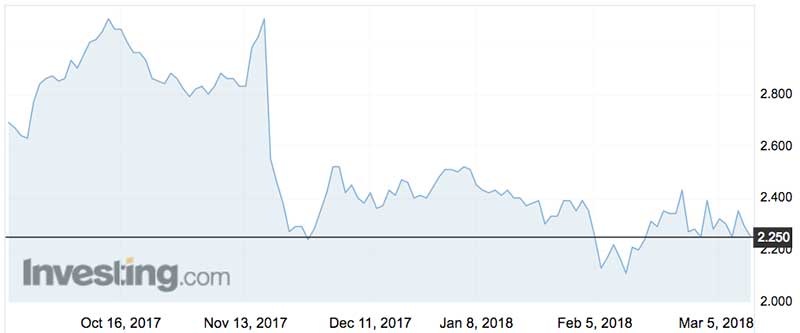Air traffic controller Adacel hopes Artificial Intelligence will help shares take off
Tech
Tech
In the movie Pushing Tin, air traffic controller John Cusack quips: “Oh you think the pilot is controlling this plane? That would really scare me.”
Two decades on, ASX-listed Adacel’s artificial intelligence and voice-activated cockpit technology is making that a much less likely scenario.
Adacel Technologies (ASX:ADA) — a world leader in air traffic management systems and simulators — is developing cockpit automation solutions that are gradually reducing the workload and error risks for pilots.
It has also commercialised its underlying speech recognition and AI technologies in applications such as automated conflict detection and pilot monitoring and control by exception, clearly paving the way for increasingly remote management of combat and high-risk commercial situations.
Most of the company’s revenue is still in air traffic management and training. It also sells equipment and support services to a wide and growing range of aviation authorities around the world.
Watch tech expert Tim Knapton’s short video profile of Adacel:
More than 15,000 federal and civil air controllers and 10,000 military controllers use Adacel’s systems across more than 30 countries.
However, the stock is yet to recover from an announcement at last year’s AGM about the loss of a US Federal Aviation Administration contract for field support to a new entrant in the US.
The market was spooked by the $US52 million ceiling value of the contract and the threat that this might be the tip of the iceberg — given 80 per cent of revenue is derived from the vast US aviation sector.
Adacel and payments for Adacel’s proprietary software that will continue to run the system.
Moreover, Adacel’s current contract runs for two more years and it’s unclear how well a third party will be able to maintain Adacel’s hardware without all the requisite access codes.

The share price remains 25 per cent below the pre-AGM level and that appears to be a significant over-reaction.
Even more so when you consider that for the December half the company reported a 28 per cent lift in revenue and flagged a strong second half.
Margins were down but that seems to be because of numerous simultaneous large systems installation programs.
More recently, Adacel has been tasked with modernising Fiji’s traffic management system in a deal worth $4 million.
Indeed, the company now has an installed base of over 800 simulators and training systems and in turn that means about 60 per cent of revenue is annuity-based with about 25 per cent coming from additional systems and services and 15 per cent from new contract wins.
So for a company with such extensive and patented intellectual property, a quality global client base and high revenue momentum a current year EBITDA multiple of less than 15 times seems very undemanding.
Tim Knapton is the founder and CEO of online tech research and finance marketplace TechVoyage. Its video/financial database and digital broadcast platform provide a more efficient way for investors to appraise listed and unlisted tech companies and for entrepreneurs to finance, acquire and exit them.
Previously Tim was Head of Corporate Broking at Deutsche Australia and before that ran a research department for a leading broking house. Tim has also been a freelance tech/finance journalist for more than 20 years and a columnist with The Australian Financial Review, The Bulletin, BRW, Shares and Australian Business.
This article does not constitute financial product advice. You should consider obtaining independent advice before making any financial decisions.